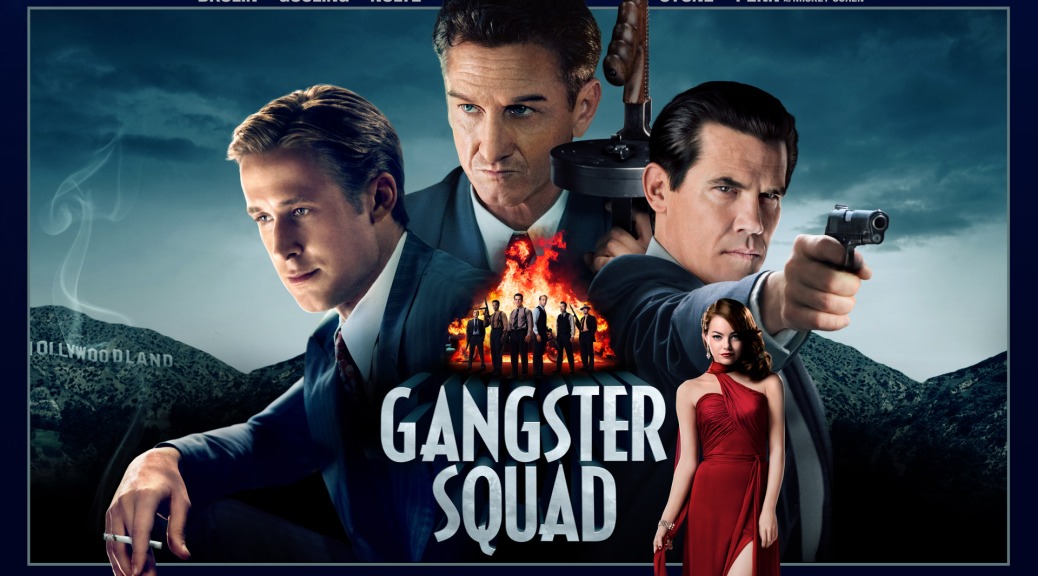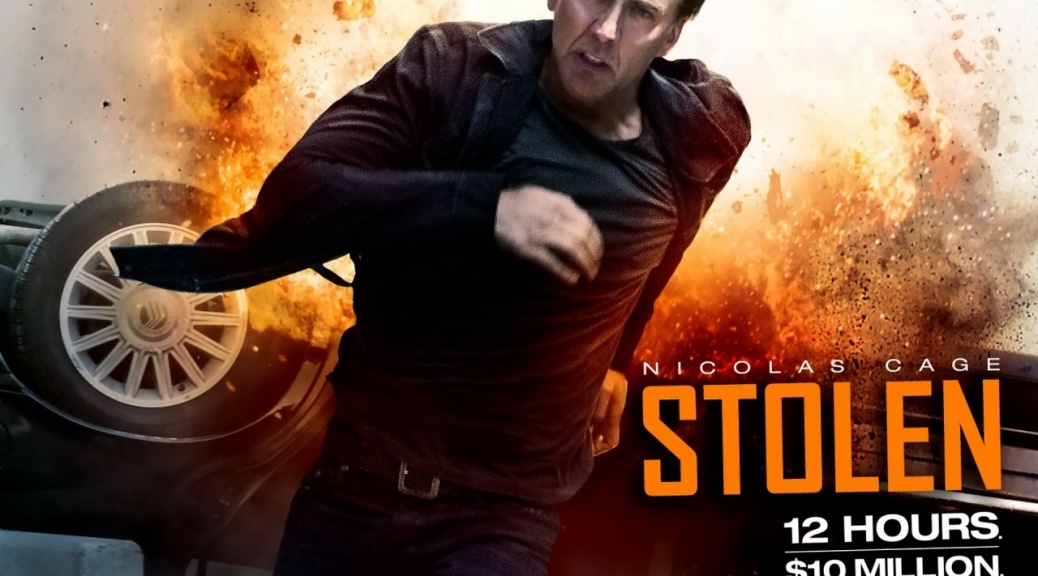Gangster Squad is 2013’s first big disappointment
Okay, so I am not saying I certainly did, but I may have popped an artery in my brains due to the awesomeness explosion that was the official trailer of the Gangster Squad, when it first hit the net. I’m not saying that I did, but I may have run around in circles with my hands waving wildly in the air on finding out that the star cast of the film included Sean Penn, Josh Brolin, Ryan Gosling, three of the finest young character actors in Hollywood today – Anthony Mackie, Michael Pena and Giovanni Ribisi – and the woman of my dreams, Emma Stone.
And I’m not saying that I did, but I may have lost the will to live when I found out that Gangster Squad’s release date was pushed from September 2012 to January 2013. And I’m not definitely not saying this because it may reflect on how awfully exciting my real life is, but one of the biggest reasons I may not have wanted the world to not end was because “HOW COULD IT END BEFORE GANGSTER SQUAD RELEASES?”
But here’s what I’m definitely saying today: The last time I was so disappointed with a movie was when I walked into a theatre to watch Don 2 and ended up watching Farhan Akhtar’s midlife crisis in what could only be called Shah Rukh Khan’s Bodyguard. Okay, so maybe Gangster Squad is not *that* awfully bad, but the problem with the movie is that… it’s not awfully good either.
At the outset, Gangster Squad has *so* many things going for it: It’s got THAT cast, with Sean Penn relishing the role of mob king Mickey Cohen possibly as much as Christoph Waltz relished Hans Landa (Inglorious Basterds) or the… err… mountain that played Mordor relished Sauron (Lord of the Rings). It’s got Ryan Gosling and Emma Stone paired together for the second time after Crazy, Stupid, Love showcased their out-of-the-world chemistry that made even the non-believers go giddy with incurable bouts of lurrrveee.
It’s got epic music, outstanding art direction, styling, look and atmosphere, and dialogues so quotable, they could put a Salman Khan-starrer to shame. At its helm, it’s got director Ruben Fleischer, whose Zombieland was by far the coolest take on the zombie-pocalypse by an American (because the Brits did Shaun of the Dead). And it’s NOIR! About GANGSTERS! Set in the ‘40s! In Los Angeles! If that doesn’t spell “OMGTHISISTHEBESTFILMEVER”, what does?
The answer to the above question may arrive on February 14th in the form of A Good Day To Die Hard (yippee-ki-yay!), because Gangster Squad spells something between “OMGISTHISREALLYHAPPENING” and “OMGHOWCOULDTHEYDOTHIS”. Because Gangster Squad has so many things going for it, and yet, it somehow botches it all up and ends up looking like a parody of a gangster movie, rather than an actual gangster movie.
For one, it’s funny. I’m not talking of Goodfellas funny or Gangs of Wasseypur funny, I’m talking about Adam Sandler funny (yeah, ouch). For example, in a movie about a squad of six daredevil cops who’re entrusted with the responsibility of destroying the operations of California’s most dreaded gangsters, there is an extended gag about these guys botching their first operation by being caught by other cops and being jailed for it. Had it been done convincingly enough, it may well have been a classic, but Fleischer takes the slapstick route he undertook fairly well in his 30 Minutes or Less, but imagine such sequences in an LA Confidential or Boardwalk Empire or any noir movie or TV show worth its salt, and you’d understand why they stuck out like sore thumbs.
Another reason is that the film is as predictable as a Katherine Heigl romantic comedy, and just as exasperating at times. *Spoilers ahead:* So when a cop doesn’t want to join the squad, you know a close one would die for him to agree – but the movie introduces the close one about two minutes before this turn of events, and only for that purpose. When a henchman screws up, you *know* that the boss is going to kill him – but the sheer number of times the henchmen screw up and face their imminent deaths makes you wonder if Cohen probably failed as a gangster because he employed the biggest fools of Los Angeles in his gang. And when everyone in the team leaves for a mission except the one person, you *know* that one person is going to die – but the movie is so obvious in its manipulation that this person is the only one who is shown with a family.
But probably the biggest blame in this sabotage of what could have been a classic, lies with the editing: the movie feels like it should have been a two-and-a-half-hour crime saga but is wrapped up in less than two hours. While that’s a great thing now considering even those two hours feel like two long never-ending Mumbai summer months, you get the feeling – you hope – that the movie has been mercilessly cut and there exists a Director’s Cut somewhere, within which lies a movie that is just as awesome as the trailer suggested.
Because if there isn’t, then Ruben Fleischer should really never try anything other than a comedy again because, honestly, even the most serious scenes in the film are funny – it’s laughable how badly they are acted, how convenient they end up being, and how contrived and obviously manipulative the emotions are (wait for the scene with the kid and the bicycle and let me know how hard you laughed). I, for one, was actually *rooting* for someone central to the plot to die in the film so I’d feel more connected to it, but even when a couple did, I was just happy that the climax was finally around the corner.
There is a fine line between being pulp and being corny. Gangster Squad pretends to be the latter but ends up being the former, and it’s only the masterful acting by Sean Penn and the heart put into it by Josh Brolin that just about save the day. If you must, watch Gangster Squad without any expectations, and while you may still be disappointed, at least you will not go on a binge of junk food and aerated drinks, without a care for calories, having lost all faith in Hollywood and the world at large (okay, I’m not saying I did that, but I may have…).
Note: This review first appeared on Firstpost.com on January 11, 2013
Link: http://www.firstpost.com/bollywood/film-review-gangster-squad-is-2013s-first-big-fat-disappointment-584405.html
Picture courtesy: Google. None of the pictures are owned by the author all rights belong to the original owner(s) and photographer(s).
© Copyright belongs to the author, Nikhil Taneja. The article may not be reproduced without permission. A link to the URL, instead, would be appreciated.










